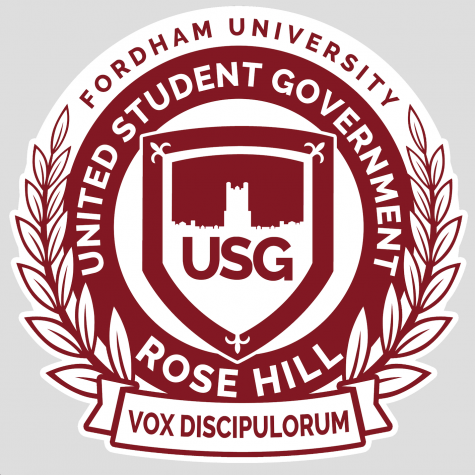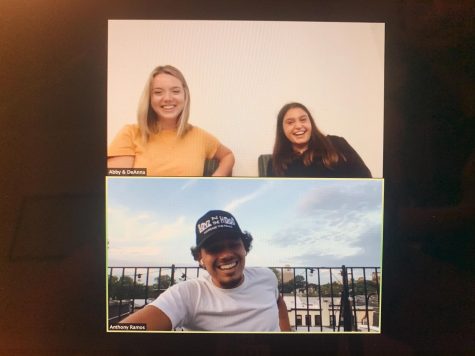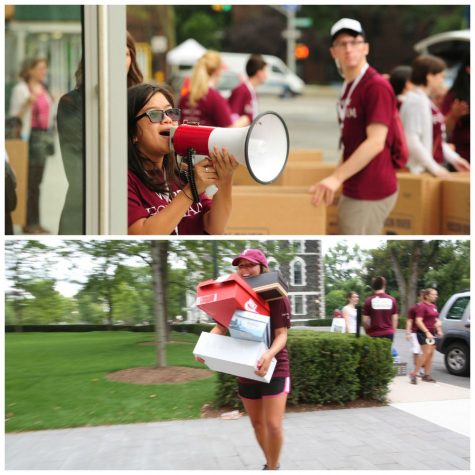Students and Faculty Participate in Scholar Strike Discussions
Fordham faculty hosted 5 events on Zoom where attendees watched "teach-in" videos and discussed issues of race, amongst other things. (Mackenzie Cranna/The Fordham Ram)
September 16, 2020
Last Tuesday and Wednesday, Fordham students and faculty participated in the nationwide #ScholarStrike. Inspired by NBA and WNBA protests, this movement asked scholars to pause their everyday work and focus on raising awareness and prompting action against racism, mass incarceration, policing and more.
Fordham faculty put together five Zoom sessions over two days that covered a variety of topics. Jeannine Hill Fletcher, a professor in the theology department, described herself as similar toa communications director. She said that there was a network of people playing various roles.
Fletcher said several faculty members learned of the scholar strike from networks outside of Fordham. From there, they created a network of people who were interested in working on it.
In each session, they watched video clips of scholars and news pieces produced by outside entities to help understand the issue. Then they had a round table of discussants that opened up the conversations. Since the whole program was on Zoom, everyone in attendance was able to participate in the conversation.
She said the sessions were pretty remarkable, citing about 65 people at the first session on Tuesday, about 100 at the second on Tuesday, and about 70 at the first session on Wednesday.
“If you look at who shows up and who’s on the roundtables, we’re gonna have 400 people at Fordham who are already doing this work,” said Fletcher.
Fletcher said this was an opportunity to reconnect across many different areas of the university. She hopes it helped to deepen their analysis and understanding by getting together outside of individual departments.
“Fordham has a mission that includes the alleviation of suffering,” said Fletcher. “One of the insights from one of the student participants this morning was that we need to find ways of constituting the work that we’re doing at Fordham so that this is not just an opt-in discussion.”
This movement has been described as a pause to business as usual, but Fletcher said this work is ongoing and the people who participated are the people who are already doing this work.
“These two days were just an opportunity to get together,” she said.
Fletcher elaborated on the idea of the alleviation of suffering. She said that we have to be incorporating anti-racism and systemic analysis of racial injustice into all elements of the faculty’s teaching. This is central to what Fordham understands its mission to be and is too often an optional element of our work, according to Fletcher.
“We need to make this more, not just a mission that we project, but we need to make sure it’s actually coming through in all areas of curriculum,” Fletcher said, echoing a sentiment made by a student at one of the discussions.
Sophia Singh, FCRH ’21, a student discussant at the session entitled “The Role of Scholars in the Work of Racial Justice,” said she is passionate about racial and social justice and spent a lot of time learning more by reading activist literature over quarantine.
“I had a wonderful experience,” said Singh. “The people who spoke, both on and off the panel offered such an intellectually diverse range of perspectives, and I think I learned a lot from hearing from them. The discourse was respectful, considerate and growth-oriented. I felt like my voice was not only heard but also respected and appreciated.”
Rufus Burnett, a professor within the theology department, was a discussant on the panel entitled “Perspectives on Religion and Racism.”
“I was very heartened by the kinds of classes and so many others in the department that there is a kind of hope I think that bubbled up in the session,” said Burnett. “I don’t know what will become of it because the institution has to survive, and part of that survival means mitigating risk. One can never know fully how an institution is going to mitigate the risk. What would it mean to have anti-racism training or anti-racism curriculum in every department on campus? Would that be beneficial to the institution, or would it cause people to run away?”
Burnett said general criticism he had about the session he participated in was that there wasn’t enough thought about the work of Anthea Butler and Kevin Gannon, which were the co-organizers of the walkout. He said he would have liked to see more discussion about them and what can be learned from them.
Jacqueline Reich, a professor in the department of communication and media studies, participated on the panel “The University in the Work of Racial Justice” and said she had a wonderful experience.
“I got to listen to Fordham students and faculty come together to talk about how we can make Fordham a more just and equitable institution,” said Reich. “I also really enjoyed the video we discussed by Anthony Jack discussing his work on the privileged poor. The takeaway is that there is a lot of work to be done, and we should start by listening to each other with dignity and respect.”
Diane Detournay, a professor in the women studies department, said she participated in a different way than attending a panel. Detournay said the organizers suggested multiple forms of participation specifically to address the uneven levels of job security and the precarity of certain positions.
“One act of solidarity they detailed is to take part in conversations and learning around anti-Blackness,” she said. “In my class, we were scheduled to read the foundational work of Black feminist scholar and activist Kimberle Crenshaw (who coined the term intersectionality). In our Zoom conversation, we discussed the stakes of the Scholar Strike, and I shared how I viewed the act of reading and discussing Black feminist theory as in alliance with the action of the scholars strike.”
Colt Anderson, Ph.D., a professor in the Graduate School of Religion and Religious Education, said he participated in the panel “Perspectives on Religion and Racism” because he thinks these issues are important given everything that is happening right now. He thinks Fordham has an obligation to address these issues, especially as a Catholic institution.
“I hope it caused all of us to be more intentional and think about the role of race in terms of us and the country, and what it means to be a person of service and what it means to think of human rights,” said Anderson.












If you want a picture to show with your comment, go get a gravatar.